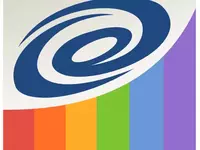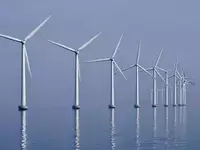More Ways to Navigate
Projects and Collaborations
Find projects on which SERC is a leader or collaborator
Sustainability Site Guide
Explore resources and teaching materials from SERC projects and collaborators that tie together scientific, social, economic, political, and/or ethical issues to teach about sustainability. These sites provide information and advice for tying sustainability concepts into a variety of settings and across the curriculum and promote an interdisciplinary approach to the way we teach sustainability-related topics in an effort to prepare our students for the complexities of living, working, and making informed decisions in the future and in illuminating the connection of these topics to their daily life
Jump down to: General Collections |Tools | Interdisciplinary Resources | How to Teach Sustainability
Bookmark this page and then click the images above to browse teaching activities, course descriptions, and essays related to sustainability topics. Collections are contributed by faculty members who participated in SERC led workshops or projects.
General Collections & Resources
InTeGrate: Interdisciplinary Teaching of Geoscience for a Sustainable Future - Is a community effort to improve geoscience literacy and build a workforce that is prepared to tackle societal issues. Find teaching materials, strategies and teaching themes, information about successful programs, and syntheses from past workshops. Started through a National Science Foundation STEM Talent Expansion Center grant in 2012, the program has expanded with many pathways for faculty involvement and collaboration.
Climate Literacy and Energy Awareness Network (CLEAN) - Accurate education about climate and energy topics has never been more important, and it can be challenging to locate reliable, vetted educational materials to use in your classroom. CLEAN is here to help you find the resources that you need, without wondering about their scientific credibility or educational value.
The Business and Science: Integrated Curriculum for Sustainability (BASICS) team develops transdisciplinary curriculum modules for undergraduate students that combine STEM and business, with a focus on the wicked problems of sustainability in a global economy. The project team features faculty experts in STEM and business disciplines from multiple institutions that are forming Local Learning Communities to collaboratively and iteratively create and assess these curriculum modules. Through this model, BASICS is building a strategic network of partnerships that can help catalyze faculty learning and change across the broader academic community, leading to a 21st century education that prepares all students, STEM and business alike, to better address complex problems of sustainability in a global economy.
Sustainability Improves Student Learning (SISL) focuses on resources for teaching sustainability from interdisciplinary and disciplinary perspectives. For those new to incorporating sustainability into your teaching, start with the beginner's toolkit. There is also pedagogical information for designing sustainability assignments.
Developing Student Understanding of Complex Systems (from On the Cutting Edge) - This collection begins with a detailed explanation of the characteristics of a complex system which include many interdependent variables, feedback loops, chaotic behavior, etc. The collection also presents pedagogical strategies, activities, and course descriptions, essays and much more about addressing complex systems.
Carbon Footprint Collection (from On the Cutting Edge Teaching about Climate Change) - This collection contains carbon footprint exercises appropriate for introductory level students via ready-made footprint calculators, or left as open-ended calculations in upper level courses.
Tools
The Earth Exploration Toolbook - The Earth Exploration Toolbook has a number of data-rich activities designed for high school classrooms including chapters related to atmosphere, biosphere, climate, Earth cycles, oceans, and more.
The InTeGrate STEP Center material can help you think about how to include sustainability at the department or program level. Addressing learning about the Earth at the programmatic level can take many forms. Here are 16 program models focused on some combination of these strategies in their work with insight on their process.
Interdisciplinary Resources
BASICS: Building off of lessons learned from a pilot study, 32 faculty members (8 principal investigators and 24 participating faculty members) representing diverse STEM and business disciplines from Bentley University, Northern Illinois University, and Wittenberg University formed communities of faculty to create and rigorously assess transdisciplinary curriculum modules focused on sustainability.
Curriculum for the Bioregion - This is a network of educators in Washington State who are integrating sustainability and place-based content in a broad array of undergraduate courses. The site hosts collections of teaching activities, course descriptions, and essays with approaches to curriculum integration and engaging pedagogies for both classroom- and community-based learning.
Project EDDIE - Environmental, Data-Driven, Inquiry and Exploration created an approach to helping students build self-efficacy and science identity by building inquiry skills with environmental data sets. Many EDDIE teaching materials are applicable to teaching sustainability topics.
Teaching About Energy (from On the Cutting Edge) - Aimed at undergraduate geoscience faculty, these resources are for getting started or improving teaching about traditional and alternative energy sources along with activities and courses addressing energy. Includes a rich selection of visualizations on energy sources and generation of energy.
Teaching Public Policy in the Earth Sciences (from On the Cutting Edge) - Presents information and activities on incorporating public policy issues into science courses. Includes an extensive list of web resources and several examples of role playing scenarios that are useful for teaching about public policy.
EarthLabs - This extensive collection is designed to assist educators in teaching how the earth system functions through five Earth Science units; Corals, Cryosphere, Drought, Fisheries, and Hurricanes. Earthlabs contains rationale for teaching with an Earth System approach, goals and objectives for each of the five units, and several lab or hands-on activities for each unit.
How to Teach Sustainability
Teaching topics of sustainability requires a broad understanding of many facets of the Earth system and benefits from active learning strategies to all students to become engaged in these complex and potentially controversial subjects. Sustainability topics are intertwined and do not resign themselves to a particular discipline. This selection of pedagogical approaches lend themselves to effective sustainability teaching and learning.
Strategies and Teaching Themes for teaching sustainability from the InTeGrate STEP center. Consider how to infuse sustainability across the curriculum, connect students to the world we live in, build interdisciplinary connections and connect sustainability to justice.
Teaching Environmental Issues and the Affective Domain (from On the Cutting Edge The Affective Domain in the Classroom) - This web page offers some strategies to teach environmental topics, particularly controversial ones, without coming up against affective barriers to learning. The page also offers a collection of examples, teaching methods that work well with teaching about controversial environmental issues, and a list of related links and resources for further information.
Using an Earth System Approach (from Starting Point) - The Earth System Approach acknowledges that changes in the solid earth can impact the atmosphere, lithosphere, biosphere, or hydrosphere. This resource presents information on how and why to create an earth system course. More on Systems Thinking available from InTeGrate
Interdisciplinary Approaches to Teaching (from Pedagogy in Action) - Many aspects of sustainability are interdisciplinary. This resource provides a step-by-step guide of how to make your course interdisciplinary, ideas for assessment, and examples of types of courses that lend themselves to being interdisciplinary.
Service Learning in the Geosciences (from On the Cutting Edge) - This collection of pages offers tips for creating and implementing a service learning project in your course. It also offers examples of service learning activities contributed by the community.





















